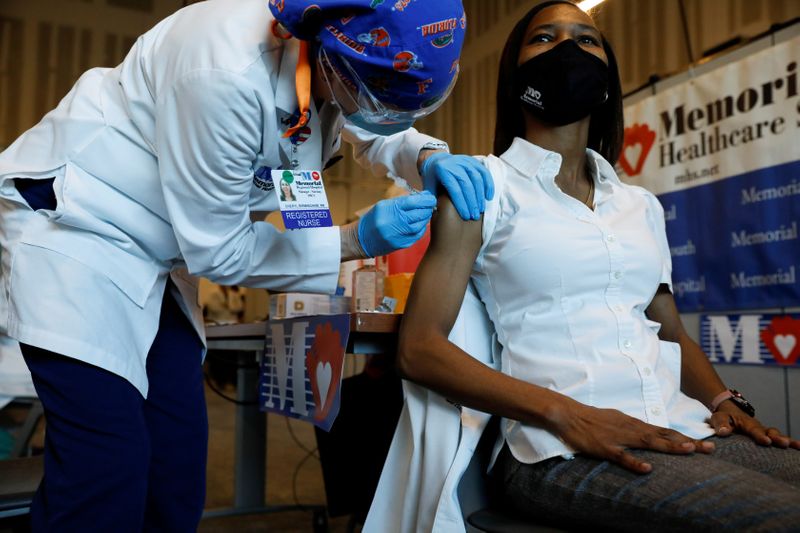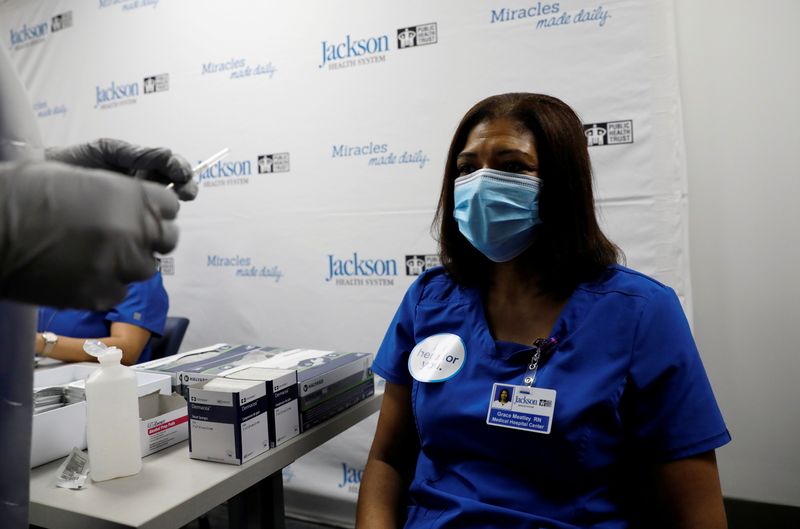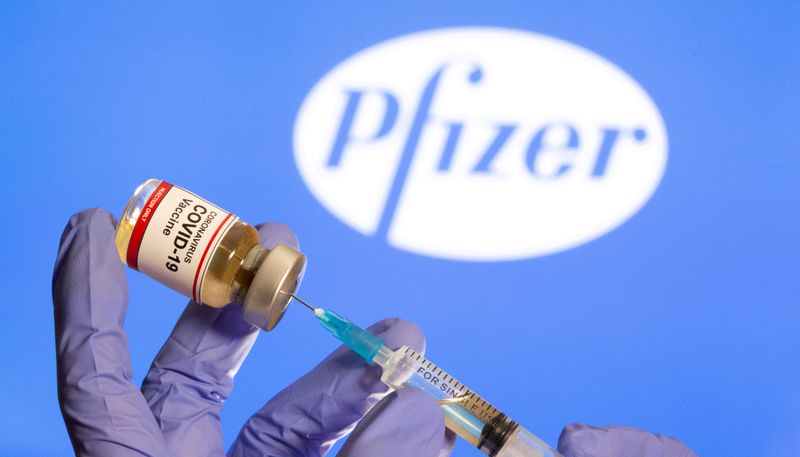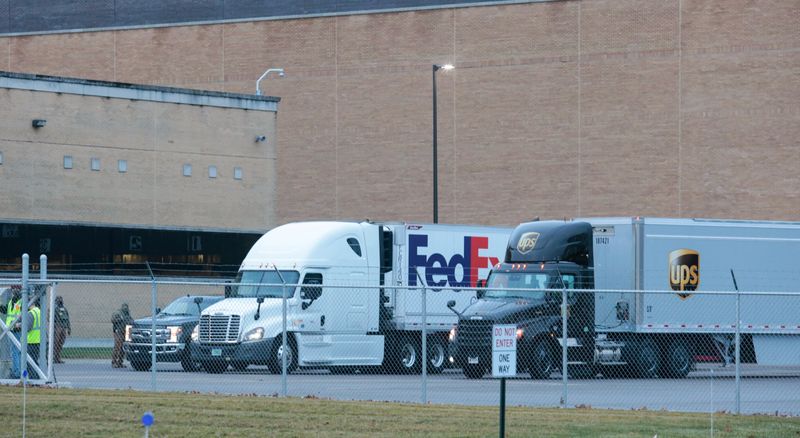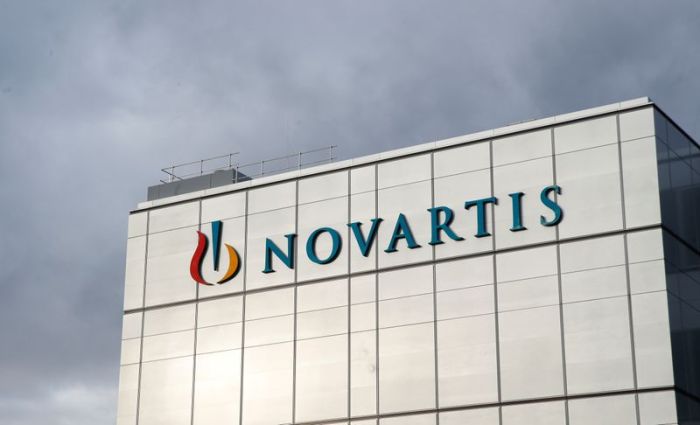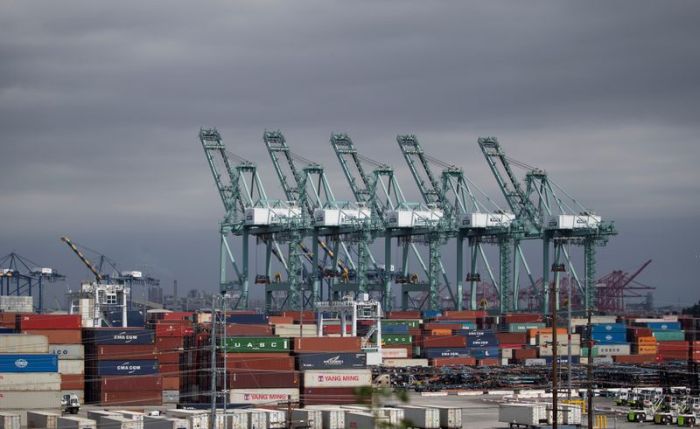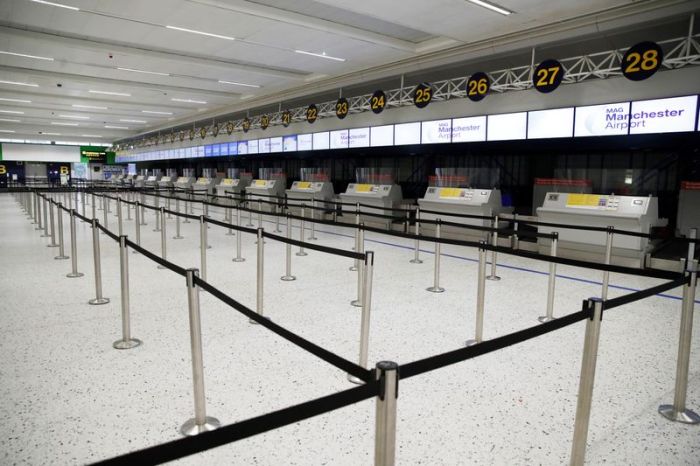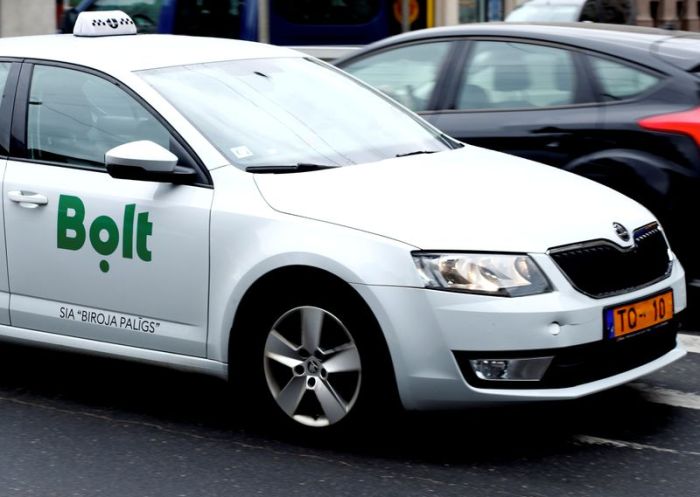(Reuters) – In November, the National Black Church Initiative organized a 15-church community campaign in Baltimore to encourage Black Americans to get their flu shots. Eleven people in a city of 600,000 showed up.
“We saw it as a dress rehearsal for the resistance we’re going to get when the (coronavirus) vaccine is ready,” said Rev. Anthony Evans, president of the National Black Church Initiative.
Trucks are rolling across the United States beginning the enormous task of distributing the coronavirus vaccine from Pfizer Inc and partner BioNTech SE, with more expected from Moderna Inc, Johnson & Johnson and AstraZeneca Plc upon approval.
Convincing large numbers of skeptics to accept protection from the deadly disease adds to the challenge of ending a pandemic that has claimed more than 300,000 U.S. lives.
Federal health agencies, nonprofits, and marketers are crafting public service campaigns for television, websites and social media to promote vaccination to all Americans, with emphasis on addressing longstanding, historically justifiable, distrust among racial minorities hardest hit by the virus.
The Ad Council, a nonprofit group known for successful national programs including one that promoted the polio vaccine in the 1950s, is preparing a coronavirus vaccine campaign to begin in January.
“Communities of color have been disproportionately impacted by COVID from the beginning,” Lisa Sherman, chief executive of the Ad Council, said in an interview. “A public education campaign is important to focus on those groups, empowering them with the facts and hopefully get them feeling better to take the vaccine.”
The group aims to raise an initial $50 million from the private sector. Social media platforms Facebook, Snap and Reddit plan to donate advertising space, spokespeople from the companies said.
Finding the right messengers is a top priority for groups creating public service announcements (PSAs) targeting minority communities.
In August, the Council signed up Academy, Emmy and Tony award-winning actor Viola Davis and Simone Biles, America’s most decorated gymnast, for ads encouraging wearing of face masks in its “You Will See Me” campaign.
The nonprofit said it has yet to finalize details of the new vaccine education campaign such as the specific content of its PSAs or who within the sports, music and social media worlds will be featured.
Sherman said the organization is coordinating plans with President-elect Joe Biden’s transition team, and will work with the Department of Health and Human Services (HHS) and the Centers for Disease Control and Prevention.
Outgoing President Donald Trump’s administration launched a separate $250 million public education campaign this month. HHS scrapped part of the program to recruit celebrities to “inspire hope” after Democrats threatened to block Trump’s use of federal funds they saw as a scheme to help his re-election.
The HHS “Building Vaccine Confidence Campaign” will target the “movable middle,” of Americans hesitant to get vaccinated, said HHS spokesman Mark Weber.
Many Americans are concerned about safety due to the record speed at which these vaccines were developed, in contrast to those steadfastly opposed to vaccines in general.
The Trump administration program will also recognize “the skepticism of Black, Latino and Indigenous communities,” Weber said, adding that multicultural marketing firms have been tapped to guide the effort.
Biden’s team is working on how best to communicate the need for vaccine trust and widespread acceptance necessary to build herd immunity that can halt virus transmission.
Former Presidents Barack Obama, George W. Bush and Bill Clinton said they were willing to be filmed getting COVID-19 vaccines to help convince others to do so.
HISTORICAL DISTRUST
Distrust runs high in the Black community due to decades of unequal healthcare access and treatment, under-representation in clinical trials and a history of medical horror stories, such as the infamous “Tuskegee Study,” that left African-American men with syphilis untreated without their knowledge to observe the course of the disease.
Only 14% of Black Americans and 34% of Latino Americans say they trust a vaccine would be safe, according to a recent survey conducted by research group COVID Collaborative, which is working with the Ad Council.
A Reuters poll released last week found 49% of Black Americans said they would be interested in taking the COVID-19 vaccine, compared to 63% of white Americans. A vaccination rate of about 75% is needed to achieve so-called herd immunity, health experts have said.
Preparing people for what to expect, such as side effects, will be key, said Kate Cronin, chief executive of ad agency Ogilvy Health, a unit WPP Plc, which counts Pfizer as a longtime client.
As part of the HHS program, organizers will convene focus groups with people of diverse backgrounds to help shape ads to lessen vaccine hesitancy that would be placed in media outlets favored by certain groups, such as Native American radio stations, Weber said.
People of color who participated in vaccine trials could also be courted to appear in commercials to reassure communities that they are safe, said Sommer Bazuro, chief medical officer at communications and marketing firm FCB Health Network, which counts Pfizer and AstraZeneca among its clients.
People like former New York Giants football player and ESPN Deportes commentator Raul Allegre could play an important role. Allegre, 61, and his wife are volunteers in Moderna Inc’s ongoing COVID-19 vaccine trial.
He has appeared in a social media campaign in English and Spanish created by the COVID-19 Prevention Network.
“It was about encouraging people to join, because Hispanics and African Americans are at higher risk,” Allegre said. “The message was, ‘let’s get this (pandemic) over with.'”

